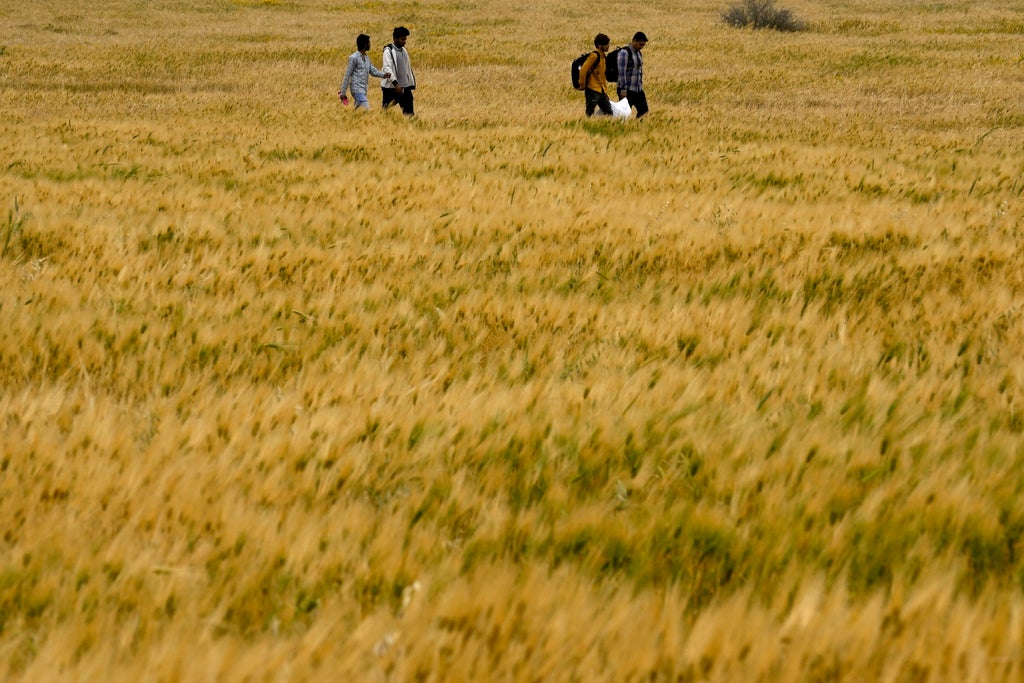
Cyprus will install an electronic surveillance system along the buffer zone that divides the island nation along ethnic lines, to stem a surge in illegal immigration through the breakaway north, the government said Tuesday.
Government spokesman Marios Pelekanos announced the plan following a meeting of police and defense officials, chaired by Cypriot President Nicos Anastasiades, on dealing with migrant arrivals.
According to European Union statistics, the number of migrants crossing from the Turkish-Cypriot north to the internationally-recognized, Greek-Cypriot south through the buffer zone in January-April rose 184% over the same period last year.
Pelekanos said Cyprus expects the EU — of which the eastern Mediterranean island is a member — to follow through on a promise for financial and material help to cope with the arrivals. Cyprus and the EU signed a deal on the matter last month.
He didn't provide details on the surveillance system planned for later this year along the 180-kilometer (120-mile) buffer zone, which is patrolled by the United Nations. The majority of asylum-seekers travel to the breakaway north and then clandestinely cross to the south. Most come from Syria, India, Cameroon, Bangladesh, Pakistan, Nigeria and the Democratic Republic of Congo.
Pelekanos said Cyprus is “duty-bound” to find solutions in coordination with the EU, even as the island has received thousands of Ukrainians fleeing invading Russian forces in their homeland. The EU has granted automatic temporary protection to refugees from Ukraine, who arrive through legal corridors.
He said a unit of trained personnel will also be set up to monitor the buffer zone, while police will step up patrols in areas where migrant concentrations are highest amid concerns of an “observed increase in crime.”
Cyprus was split in 1974 when Turkey invaded following a coup by supporters of union with Greece. Only Turkey recognizes a Turkish Cypriot declaration of independence and only the south enjoys full EU membership benefits.
The government accuses Turkey and Turkish Cypriot authorities of “instrumentalizing” migrants for political gain, and of pushing them to seek asylum in the south.
Government officials say 5% of Cyprus’ current population are asylum-seekers — five times the EU average — while the country has the highest number of asylum applications per capita in the 27 country bloc.







